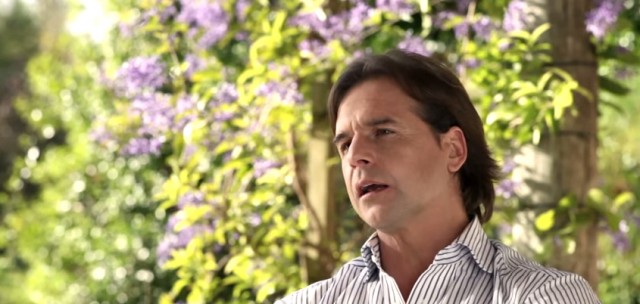
Latin America: Week in Review, Southern Cone, Uruguay
Uruguayan Presidential Candidate Would Roll Back Historic Marijuana Law
October 23, 2014 By Staff
Top Story — Days ahead of Uruguay’s presidential election Sunday, the country’s top opposition candidate on Wednesday vowed to repeal the country’s historic marijuana law, which legalizes the commercial production and sale of the drug.
Centrist National Party candidate Luis Lacalle Pou had not previously specified what actions he would take against the law. Lacalle Pou told Reuters that he would keep the articles permitting personal marijuana use and cultivation, but would repeal the rest, including the provisions for commercialization of the marijuana industry.
Public opinion polls have consistently shown that a majority of Uruguayans oppose the law, and both Lacalle Pou and right-wing Colorado Party candidate Pedro Bordaberry have recently seized on this dissatisfaction to criticize Tabaré Vazquez, the candidate from the Broad Front party of current president José Mujica.
Mujica’s initial bill drew criticism from the opposition, which said that the Broad Front party was using its majority in Congress to force the bill through without debate.
After an additional period of discussion, the bill was then amended to move the cultivation of the drug away from state control and into the hands of private entities. Following the bill’s passage last December, however, the implementation of the law has been plagued by a slow rollout and further criticism from the opposition.
Though Vazquez looks assured of winning the first-round election on Sunday, polls indicate that he is unlikely to receive the absolute majority needed to avoid a runoff election in late November. Polls show Vazquez running neck and neck with Lacalle Pou in the potential runoff, leaving the country’s marijuana experiment in jeopardy of being repealed before it even begins.
Headlines from the Western Hemisphere
North America
- Mexican troops and police killed 19 criminals suspects, taking no casualties of their own in three separate but nearly simultaneous confrontations in Tamaulipas state near the the border with Brownsville, Texas.
- Mexico’s attorney general on Wednesday became the latest to accuse the fugitive Iguala mayor Jose Luis Abarca of ordering the attacks on students in late September in order to prevent their protests from disrupting a speech his wife, a state official accused of ties to criminal groups, was planning to give.
- In the U.S., midterm elections on Nov. 4 might see two milestones reached by Latinos, who could turn out in their highest numbers yet to elect the most Latino members of Congress so far in U.S. history.
- A member of popular Mexican group Banda el Recodo, Aldo Sarabia, who had been missing since Oct. 13, was found dead with a gunshot wound to his neck in Mazatlán on Wednesday.
Caribbean
- A federal judge in Puerto Rico has upheld a ban on same-sex marriage in the country after five gay couples attempted to challenge the constitutionality of several laws in Puerto Rico, one of which defines marriage as between a man and woman.
- A photo essay in The Guardian chronicles students in Havana, Cuba as they train in wrestling, a sport which has gained popularity since Cuban wrestler Mijaín López’s Olympic gold medal wins in 2008 and 2012.
Central America
- More than 1,000 Nicaraguans protested the planned construction of a canal in the country by a Chinese firm, which activists say may negatively impact the environment, lead to the confiscation of locals’ lands and jeopardize water supplies.
- InSight Crime’s Steven Dudley reports that violence between El Salvador’s street gangs and the security forces is on the rise, quelling any lingering hopes of a sustainable gang truce.
- Colombia on Wednesday announced it will remove Panama from its official list of tax havens, ending a brief diplomatic spat with an agreement to share more tax information.
- Police in Costa Rica arrested 68 dockworkers who went on strike to protest a port expansion plan originally passed in 2011, which the government claims will greatly increase the amount of cargo the country can handle but which union workers fear threatens public sector jobs.
Andes
- U.S. authorities are returning dozens of cultural artifacts to Peru after seizing them in an investigation of smuggling networks.
- Venezuelan President Nicolás Maduro on Wednesday announced the country will limit its borrowing on international markets, where lender anxiety has made it difficult and costly to raise money.
- Alleged ELN guerrillas released lawmaker Carlos Omar Angarrita Navarro hours after kidnapping him on Monday, police said Tuesday.
Southern Cone
- Chile is working to combat slowing investment in copper mining, by far its biggest export industry, by revamping its cumbersome permit process.
- Paraguay’s interior minister on Wednesday showed evidence that of the EPP guerrilla group’s hostages, a Brazilian teenager and a police officer, are still alive, although he said the government would not trade six imprisoned EPP guerrillas for the police officer, as the leftist group has demanded.
- The campaign of Brazilian presidential contender Aécio Neves (who has closely tailed incumbent Dilma Rousseff in the most recent polling) has staked much on his record as governor in the swing state of Minas Gerais, where some say he spurred economic growth by cutting important social services.
Image:
Subscribe to Today in Latin America by Email
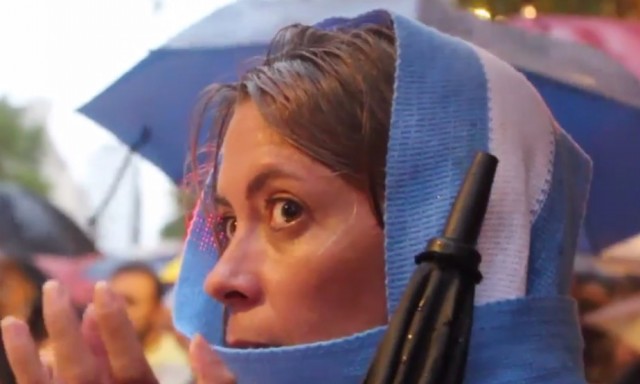
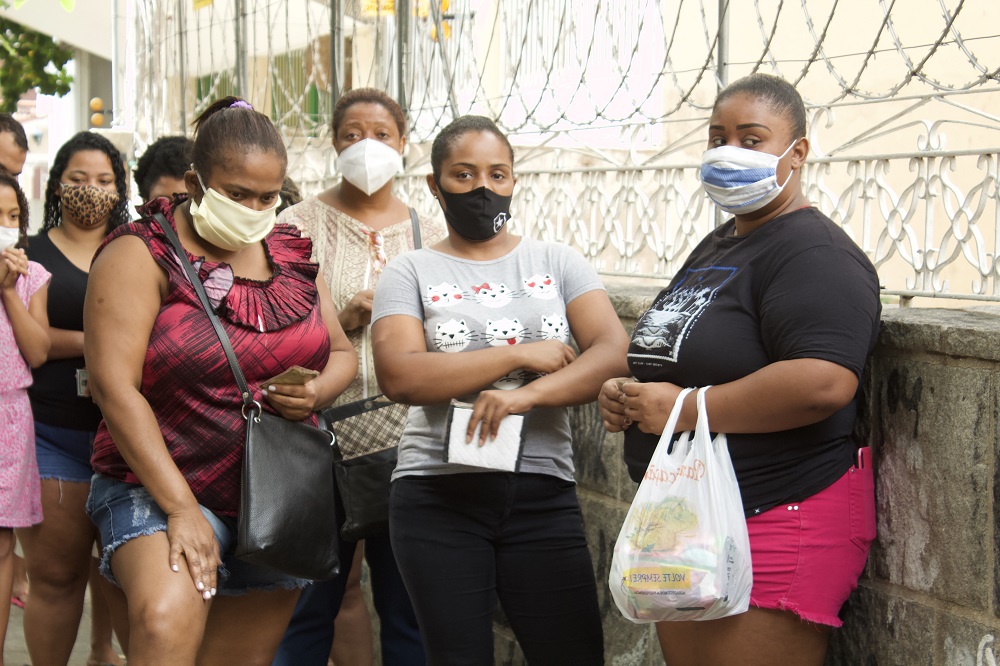
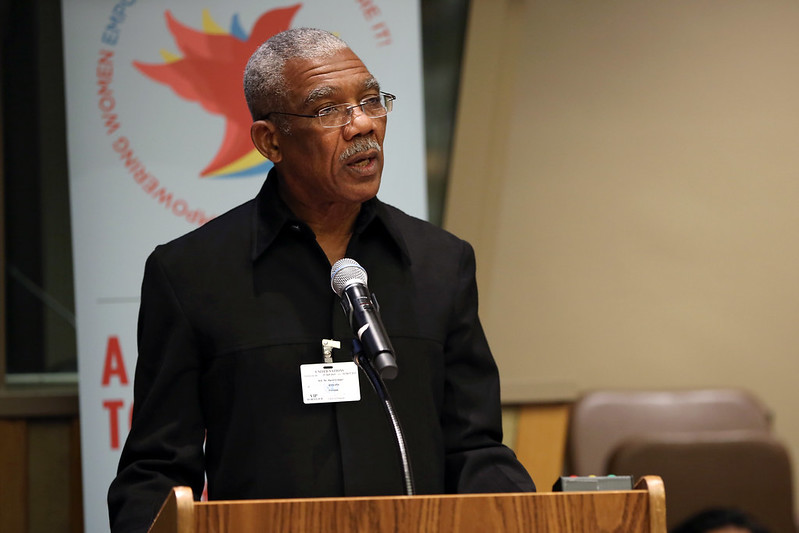
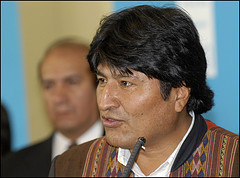
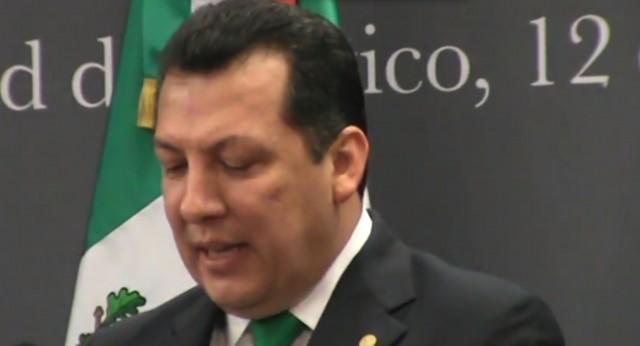
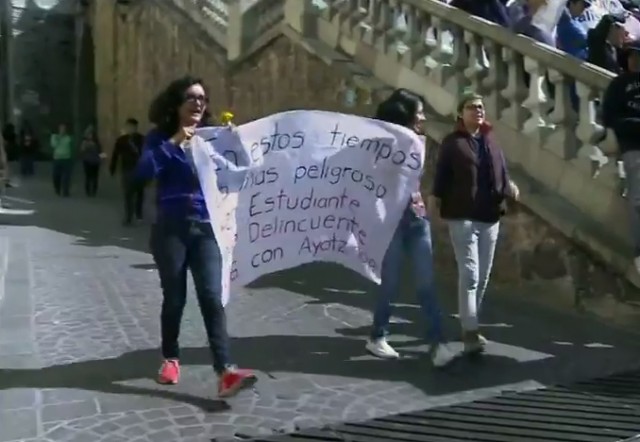
1 Comment
[…] to the U.S.-backed “war on drugs.” Opposition candidate Lacalle Pou said he would repeal the legislation if he won the […]
Comments are closed.